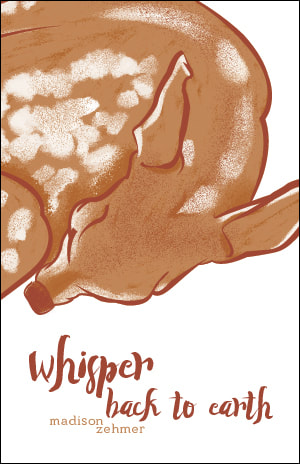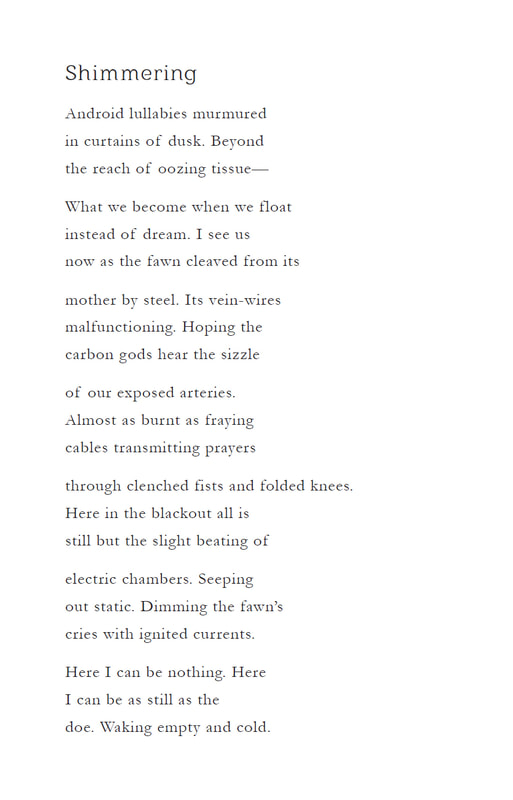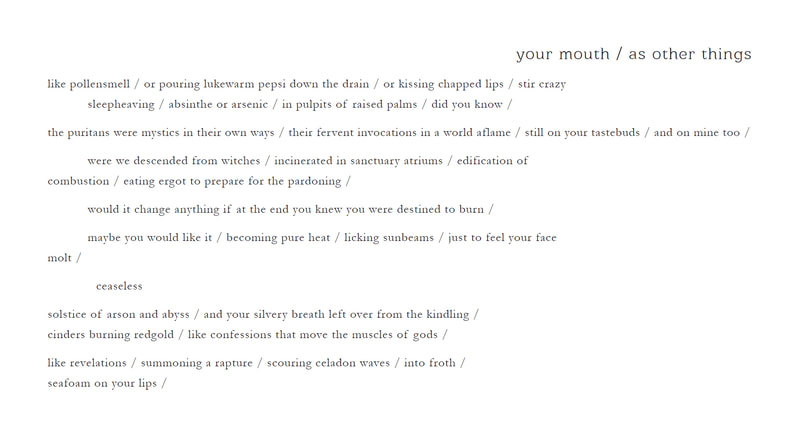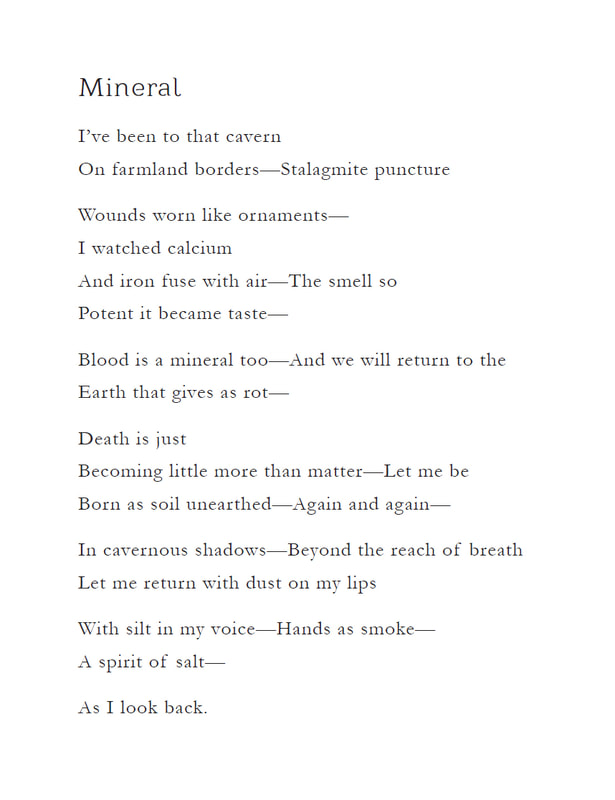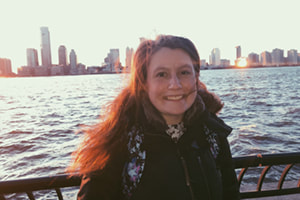ANC063: whisper back to earth by Madison Zehmer
|
You can freeze if you want / let your sour stomach / eat the sky / gray it into something dim. / Or you can smolder / like wood without name / into something pure and empty / a ribcage without lungs.
When Yde Girl’s body was recovered from a Dutch peat bog after nearly two millennia of rest, her decomposition had only begun. The wool rope encircling her neck signaled a tragic demise, though one offset by the exceptional preservation made possible by her acidic and anaerobic grave. Modern obtrusions revealed the eerily unspoiled remains of an adolescent for whom time had been suspended. Her emergence at the end of the nineteenth century was a destructive occurrence, as unbridled curiosities of the era led to her haphazard mangling. Flesh protected for thousands of years now bore wounds rendered by contemporary tools, auburn hair was pulled from the scalp upon which it had lain, and relatively pristine teeth were extracted like gruesome rewards. What endures today—on display for all to witness—is not the memory nature worked so hard to maintain those many dark and silent days, but a reminder of just how vulnerable one can be.
Similar themes of decay, rebirth, and violation permeate Madison Zehmer’s whisper back to earth, a collection of death rattles resounding as invocations. Glimpse into a void outlined in silvery breath and pared capillaries, where pesticides and ghost food fold bellies into air like withering cells. Catherine of Siena’s presence lingers over derelict carnivals and abandoned sanitariums, where grief thirsts for something more than sustenance. These poems find common ground in the terrestrial and interstellar, merging sawdust and algae with photospheres and fractal stars. In the end, it all collapses and corrodes. To permanently live like you are leaving, to know pain as virtue and desire as vice, to shrink to become—such restrictions provide momentary comfort in a world aflame. Only when one ceases apologizing for one’s space, reclaiming the rust of their everyday, does such incineration begin to cease. The sound of a coup de grâce may echo, but hope's hues are as tender as soil. Zehmer details the slow feeling of nothingness she has known, the life of something in between, the redemption of no longer being held captive by a punishment self-inscribed.
For every copy sold, Another New Calligraphy will donate $1 to the Loveland Foundation, an organization offering financial assistance and guidance to Black women and girls seeking mental health services.
|

